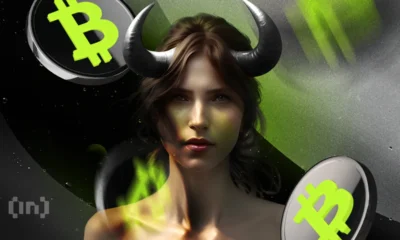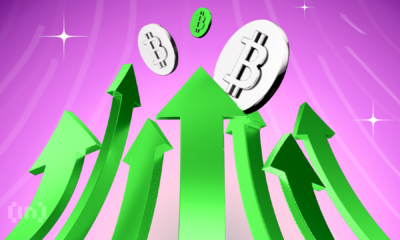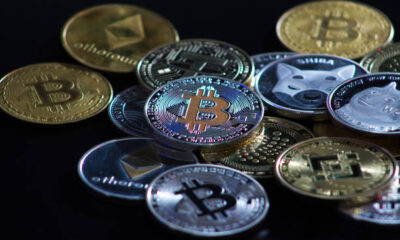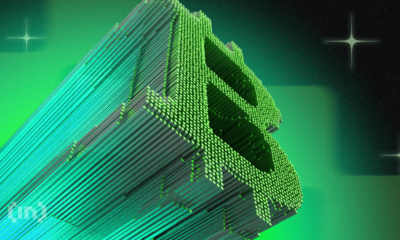Market
OKX Chief Marketing Officer Highlights Economic Dangers of a US Strategic Bitcoin Reserve
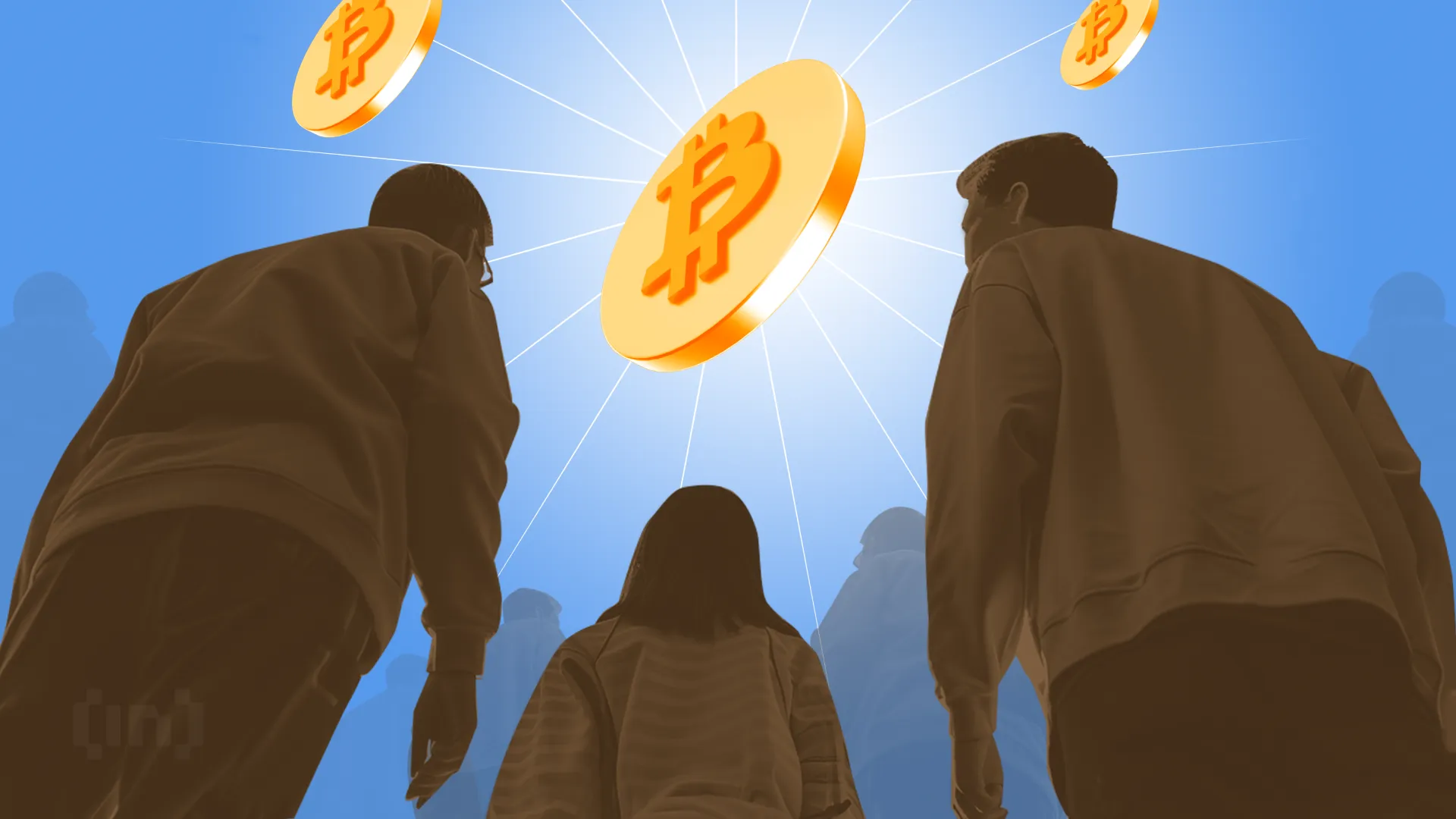
Bitcoin enthusiasts have long touted the creation of a strategic Bitcoin reserve as a hedge against inflation that can reduce the national debt and reinforce the United States’ position as a global financial leader.
Its implementation could also unleash several damaging effects on the US economy, with consequences rippling across the globe. BeInCrypto spoke with Haider Radique, the Chief Marketing Officer at OKX Exchange, to break down the risks of creating a strategic Bitcoin reserve.
Strategic Bitcoin Reserves Grow in Popularity
The concept of a strategic Bitcoin reserve has gained notable popularity over the years, both in the United States and worldwide.
A strategic reserve is a stock of crucial resources acquired by the federal government that can be used to address significant supply disruptions. Many crypto enthusiasts have been campaigning for governments to adopt Bitcoin as a strategic reserve.
In the United States, 15 states have already introduced or passed bills to do just this. Republican Wyoming Senator Cynthia Lummis was one of the first politicians to introduce this type of legislation at a federal level.
Lummis calls for the US Treasury to acquire one million Bitcoin over five years in her proposed BITCOIN Act. The Bitcoin reserve would be kept intact for at least 20 years.
Countries like Germany, Switzerland, Russia, Brazil, and Poland have also taken steps in the same direction. However, several major players in the finance industry fear intense economic instability and pervasive market volatility if a strategic Bitcoin reserve is created.
This fear is particularly relevant if the United States were to establish such a reserve, given its role as the custodian of global trade and issuer of the world’s reserve currency.
“On its face, the idea of a Bitcoin National Reserve seems like a good one – it would serve as an endorsement of Bitcoin by the United States, and it would certainly have the potential to ignite markets in the short term. But if you look under the hood, there may be a number of downsides that should cause the industry to pause and reflect on potential negative long-term consequences,” Radique told BeInCrypto.
Understanding how a reserve works is vital to comprehend the associated risks.
Bitcoin Stockpiles vs. Strategic Bitcoin Reserve
With Donald Trump as the new US president, Bitcoin enthusiasts are bracing themselves for a real shot at creating the long-awaited reserve.
Two weeks ago, Trump signed an executive order to establish a national digital stockpile. The order called for the creation of a working group to explore this possibility. The group has until July to submit a report on the criteria for such a stockpile.
Some participants in the crypto community were disheartened by this move, given that the nature of the order was particularly distinct from a Bitcoin reserve. While the concept of a stockpile derives from seized assets mainly produced from illicit activity, a reserve implies purchasing additional Bitcoin.
The United States already has the biggest Bitcoin stockpile in the world. The federal government holds at least 198,800 BTC acquired through government seizures, currently valued at approximately $19 billion. Countries that trail behind it are China, the United Kingdom, El Salvador, and Ukraine.

A Bitcoin reserve, by contrast, would require the purchase of more Bitcoin. Lummis proposes this approach in her BITCOIN Act. According to her plan, Bitcoin would be directly linked to the US dollar in order to bolster the currency. Essentially, this vision entails a monetary system where Bitcoin takes on an active role.
The pressing need to introduce such a drastic change to the United States’ current monetary system remains unclear.
Debate Over Bitcoin’s Role as a Reserve Asset
Returning to the definition of a strategic reserve, the federal government purchases these commodities in times of economic need. Most economists refer to the Strategic Petroleum Reserve as a key example of the concept.
In 1975, President Gerald Ford created the reserve when Arab members of the Organization of Petroleum Exporting Countries (OPEC) imposed an oil embargo against the United States that sent shockwaves throughout the American economy.
The legislation mandated the storage of up to one billion barrels of petroleum, recognizing its critical role in the economy. Without petroleum, economic activity would cease.
These reserves continue to serve a critical purpose. In response to the Russian invasion of Ukraine, President Biden recently tapped into these reserves to ease the strain on energy prices.
On the other hand, Bitcoin does not serve a critical purpose that warrants this sort of urgent stashing, nor is its use crucial to the functioning of the US economy. Its role as a strategic asset remains largely unclear.
Furthermore, acquiring large amounts of Bitcoin would likely lead to significant market volatility rather than economic stability. If the United States were to purchase large quantities, it would quickly reduce the supply available on the market.
“If the US government decided to acquire large swathes of Bitcoin, the short term liquidity in markets would be constrained, which could entail massive volatility in both directions. We should remember that the vast majority of Bitcoin addresses –nearly 72% according to CoinMarketCap– are long-term holders of more than one year. A mass acquisition of Bitcoin could therefore constrain liquidity further in the short term,” Radique explained.
These sharp movements in Bitcoin supply would also worry investors.
Impact on Dollar Confidence
If the United States were to create a strategic Bitcoin reserve, investors could interpret this as the federal government deciding to back the US dollar with the digital asset rather than gold. In other words, the US would send signals of a loss of confidence in the current dollar-based system.
In a recent opinion article, Nic Carter used this argument to advocate against creating a Bitcoin reserve.
“The US considering a near term abandonment of the current, relatively stable monetary system and replacing it with a monetary standard not based on gold, but a highly volatile, emerging asset, would cause utter panic among its creditors. In my view, if we even got close to a Lummis-style reserve, markets would anticipatorily start to go berserk, and Trump would be forced to withdraw the policy,” he stated.
The same effect would occur if the United States chose to sell part of its Bitcoin reserves.
Liquidation Risks
If the United States were to purchase additional Bitcoin, it would also choose when to sell it.
“Despite the emergence of bipartisan support for crypto in the US political system recently, government policy can change quickly. Therefore, as circumstances change over time, the concentration of large amounts of Bitcoin on a country’s balance sheet could represent a liquidation risk,” Radique told BeInCrypto.
Previous instances where governments sold portions of their Bitcoin stockpile holdings have shown how such actions can significantly impact the market.
“We only need to look to last year, when the German government sold around 50,000 BTC, to see what such a move could do to markets. This is often cited as a key downside of a strategic Bitcoin reserve by critics,” Radique added.
Germany sold all of its Bitcoin holdings last July to comply with a federal law that mandates the liquidation of seized digital assets. The large Bitcoin sell-off in a short period caused the price of Bitcoin to drop.
In November, a similar situation occurred in the United States when the government transferred over $2 billion in Bitcoin to third-party wallets. This move sparked price drops and raised concerns among investors about potential future auctions.
Questions would also arise over the implications of the federal government’s ownership over such large amounts of Bitcoin.
Concerns Over Centralization
For many, the idea of a strategic Bitcoin reserve could appear to conflict with one of Bitcoin’s core principles: decentralization.
This philosophy, which lies at the heart of Bitcoin, ensures that no single entity can control the entire network. However, if the US government were to start acquiring Bitcoin in large volumes, it could spark concerns about centralization.
If the US Treasury were to control a significant portion of the Bitcoin supply, it could influence the market. Such control might allow the government to impact Bitcoin prices, which goes against its decentralized nature.
Overregulation risks also arise as institutional adoption of digital assets expands across public and private sectors.
“It is our collective responsibility as Bitcoiners to advocate for this technology to be as accessible as possible while preserving its original philosophy and peer-to-peer utility,” said Radique.
As the debate over the adoption of a strategic Bitcoin reserve continues, a measured approach will benefit its implementation.
The Case for Patience
One reassuring aspect of this ongoing debate is the understanding that expediting the process might be unnecessary. Since Bitcoin is not an essential commodity for the proper functioning of the US economy, establishing a strategic reserve is not an immediate priority.
Bitcoin has existed for less than two decades. Allowing the market more time to mature also reduces the asset’s volatility in the long run.
“Bitcoin has gone from a little-known cypherpunk invention to a global cultural phenomenon and accessible, institutionalized asset in a remarkably short time,” Radique explained.
By taking a wait-and-see approach, Bitcoin could evolve into a more reliable and liquid asset, making it a viable option for the US government to include in its portfolios in the future.
The post OKX Chief Marketing Officer Highlights Economic Dangers of a US Strategic Bitcoin Reserve appeared first on BeInCrypto.

